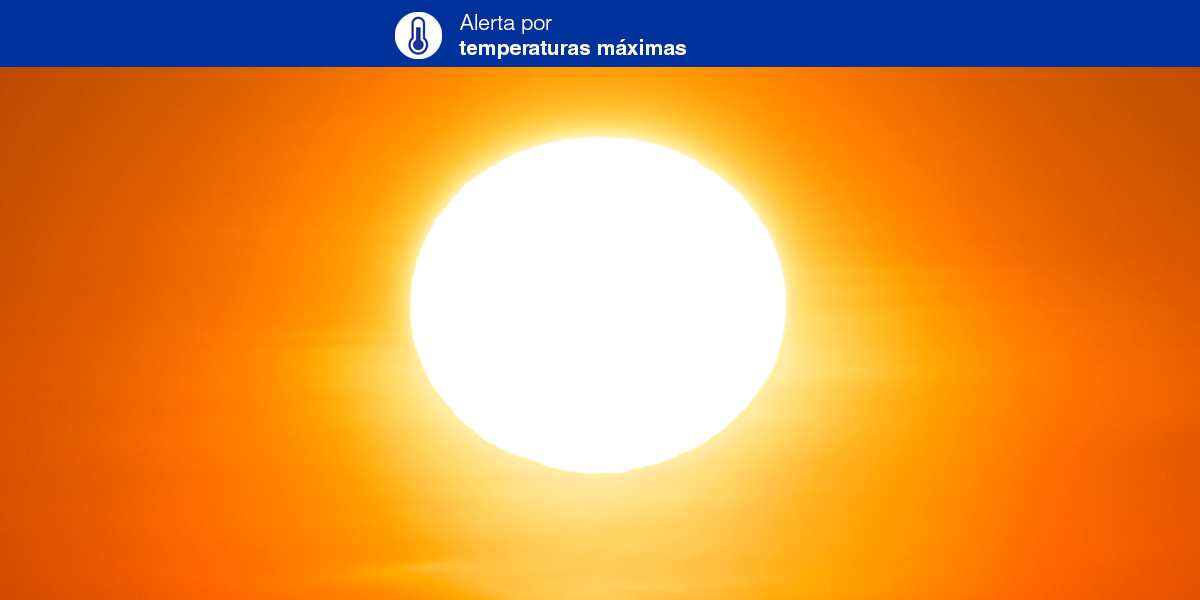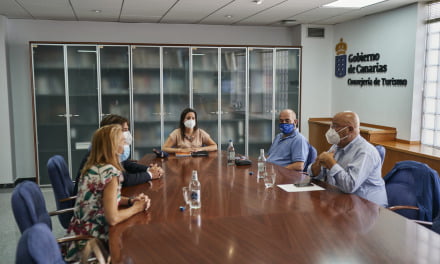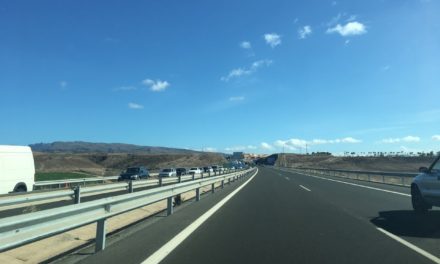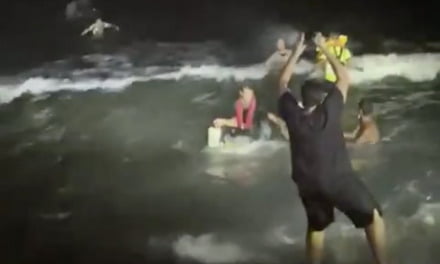The Government of the Canary Islands, through the General Directorate of Security and Emergencies, have declared an Alert for Maximum Temperatures on Gran Canaria, starting from 10:00 a.m. this Sunday, July 24.
This decision was made on Saturday taking into account all available information and applying the Canary Islands Specific Emergency Plan for Risks of Adverse Meteorological Phenomena (PEFMA).
Episodes of maximum temperatures of up to 34ºC, in the shade are expected across the north coasts of the island, at altitudes of less than 500-550 m. Elsewhere on the island, maximum temperatures could reach, and even occasionally exceed, 38ºC in the shade, with the highest temperatures expected to be recorded in the mountainous interior, other inland areas and higher altitude areas on the southern half of the island, though it could also locally affect sectors across the southern coastlines.
Spanish State Meteorological Agency (AEMET) reactivated their orange advisory warnings for high temperatures on the southern half and at the summits of Gran Canaria for this Sunday, initially from 10:00 a.m. to 8:00 p.m., which upgrades the yellow warning already in place from the start of the day (00:00) both for Gran Canaria and for the islands of Tenerife and Fuerteventura.
After a warm night the rest of the archipelago join the yellow advisory warning from 10:00 a.m. to 8:00 p.m. this Sunday, after which it will remain active on Gran Canaria, Tenerife and Fuerteventura, until 00:00 on Monday.
Temperatures should drop a little but will then increase again from 10:00 a.m. on Monday, with an orange advisory warning reactivated for the southern half and summits of Gran Canaria, until 7:00 p.m. with a yellow advisory notice in place for the rest of the Canary Islands until the same time.
A Pre-alert declaration has been maintained for the rest of islands of the Archipelago. Pre-alerts estimate that there is no meteorological risk for the population in general, although there may be for some specific activities or locations of high vulnerability.
The alert notice sent to the Cabildos, Town Halls and other institutions has been maintained so that their emergency personnel continue to be at the ready, in the face of possible changes in the meteorological situation, until the General Directorate of Security and Emergencies declares the alert/pre-alert situation to be over, based on the PEFMA guidelines.
Warning due to heat and dust
There is also an active warning for dust in suspension this Sunday, throughout the day, on the three islands most affected by the current heat episode: Gran Canaria, Tenerife and Fuerteventura .
Meteorologists point to the presence of Calima haze on all the islands, with a possible reduction in visibility down to 3,000 meters. The Saharan dust in suspension will be more intense in higher altitude areas.
The haze looks set to become more intense during the second half of the day, especially on the eastern islands and on Tenerife.
The population is urged to follow self-protection advice from the General Directorate of Security and Emergencies (translated below).
Advice maximum temperatures
In application of the PEFMA, the General Directorate of Security and Emergencies of the Government of the Canary Islands RECOMMENDS THE POPULATION FOLLOW THE FOLLOWING ADVICE:
Protect yourself from the sun and heat.
- It is recommended to stay in places protected from the sun for as long as possible and in the coolest rooms of the house. During sunny hours, lower shades on windows in direct sunlight.
- Open the windows of the house at night to cool it down.
- It is advisable to resort to some type of air conditioning (fans, air conditioning) to cool the environment.
- Keep in mind that sudden changes in temperature occur when entering or leaving places, and this may affect you.
- On the street, avoid direct sunlight. Wear a cap or a hat, wear light, light-colored clothing that is not tight.
- Try to walk in the shade, be under an umbrella at the beach and rest in cool places on the street or in enclosed spaces that warm up.
- Carry water and drink it often
- Never leave children or elderly people inside a closed vehicle.
- Avoid going out and doing prolonged physical exercises in the middle of the day, when it is hottest. Reduce physical activity in the hottest hours.
- Eat light, regular meals, drinks, and foods rich in water and mineral salts, such as fruit and vegetables, to help replenish the salts lost through sweat.
- Do not drink alcoholic beverages. Avoid very hot and high-calorie foods.
Help others. If you know elderly or sick people who live alone, visit them at least once a day.
If you take medication, ask your doctor if it can influence thermoregulation or if it needs to be adjusted or changed.
For any information request, call 012.
In any direct emergency situation call 112










